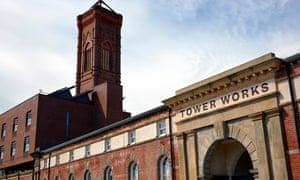Coronavirus has accelerated these processes, but they aren’t new. Neither is Leeds a novice in dealing with pandemics; the Spanish flu of 1918, which infected one in three people in the city, overwhelmed its hospitals, closed its schools and created shortages of grave diggers. What’s new about Covid-19 is that it coincides with another existential crisis – the climate emergency – and that we’ve made extraordinary technological advances since 1918.
City centres will struggle in the short term with the effects of the pandemic, and a great number of service workers will be unemployed. This is a tragedy, but it’s also an incentive to plan for medium- and long-term solutions. In the past, disasters have been the bedrock of social progress, not least in the creation of the National Health Service in 1948. And what’s good for dealing with the impacts of Covid-19 is also good for addressing the impacts of climate change.
Work on climate mitigation and adaptation has already paved the way for how our city centres should change, and has supplied the technologies to make this possible. In Leeds, Covid-19 should be an opportunity to accelerate what has already been planned to address the climate emergency, such as installing a cycling network in the city centre that connects to surrounding neighbourhoods, and engaging the community in planting 1m trees.
This green infrastructure is crucial for biodiversity, carbon capture, water management, temperature cooling and wellbeing. It’s the first step towards remodelling our urban environments as “15 minute cities”, a concept first promoted in Paris, which aims to provide all necessary services required for the health and wellbeing of its residents within 15 minutes’ walking distance. In the past, green infrastructure has also been a response to public health concerns: Central Park in New York was developed following a prolonged outbreak of cholera, and Victoria Park in east London, the city’s first purpose-built park, was opened as a response to insanitary conditions, overcrowding and pollution in the city’s East End.
But we need to go further. We should be using public investment to build networks of new parks with playgrounds and sport and leisure facilities on underdeveloped sites in city centres. Providing this green infrastructure in our city centres would attract families to live there, and compel businesses to follow. Of course, there will be a time lag between the immediate effects of coronavirus and delivering on these ambitious plans. But I’m optimistic that in this period we’ll see a burst of creativity, of the sort that often emerges from the collapse of outmoded systems.
Empty and cheap space may attract new users and institutions, as it did most notably in Detroit after the demise of its car industry. In UK cities, unused office spaces could be converted into modern family homes; in Leeds, Park Square, a handsome Georgian area that was repurposed into offices could be returned to its original residential use. Defunct shopping centres could become sites for new nurseries and community centres. Our coronavirus retrofit should be the work of many hands, a sensitive process of rebuilding cities so they’re durable, equitable and sociable places to live and work, capable of dealing with the twin emergencies of the pandemic and climate crisis.


Leave A Comment